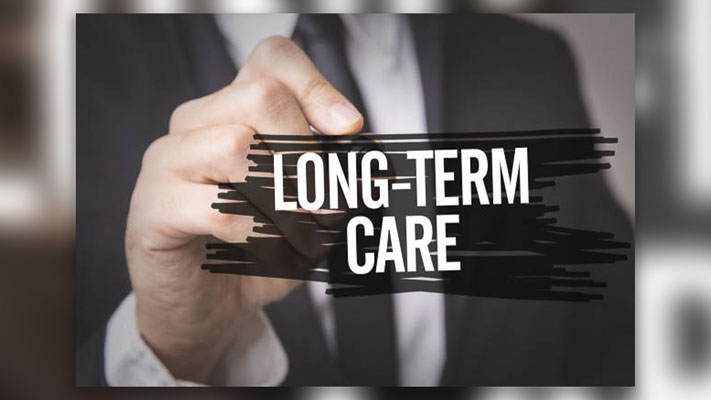
Elizabeth Hovde of the Washington Policy Center explains how the tax penalizes workers to create a program that isn’t patient-centered
Elizabeth Hovde
Washington Policy Center
A new actuarial study shows solvency-ish for WA Cares, the state’s mandatory long-term-care program that takes money from workers’ paychecks. Is that good news? I’m not sure yet. It depends on the “ish.”

It’s hopeful news for those who will be stuck with a tax to pay for a long-term-care social program during all of their working years. That will include most W2 workers today and all of the next generation of workers. I hope to learn more by watching an investment strategy meeting Friday (Nov. 4), in which the latest Milliman study will be presented.
Presentation slides already say that “the program is projected to be solvent for most scenarios evaluated including the base plan scenario. There were scenarios identified that, without corrective action, could lead the program to have insufficient revenue to provide for full program benefits over the entire projection period.” And, “As with most actuarial projections, actual results will vary, and the actual required premium could fall outside this range.”
Exactly. Ish. Maybe. Hope floats.
An avalanche of nearly 500,000 people opting out of the program, given a now-expired timeline, hurt the fund’s solvency. But the 18-month delay of the law and tax collection helped solvency predictions, given that wages are expected to continue to rise but the already inadequate lifetime benefit will stay the same. (Reminder: For nursing home care, this benefit would pay for about three months in some places. It is considered more helpful for at-home errands and limited oversight of people in need of help with the activities of daily life.)
Also helping solvency projections is a new assumption of higher investment returns. Read the full study here.
Milliman’s last actuarial study in 2020 projected insolvency at the current rate of 58 cents for every $100 in worker earnings. We’ve been told by Milliman, the state actuary and lawmakers that the fund will not be solvent, with agency heads, lawmakers, consultants and people like me anticipating that the tax rate will need to rise or the already inadequate lifetime benefit of $36,500 will need to go down to keep the program out of the red.
That might sound familiar. The payroll tax rate for another mandatory social program you may never use — the one for paid family and medical leave — grew from 0.4% of wages in 2019 to 0.6% of wages in January. It will increase again to 0.8% in January 2023. Ouch. Worse, these aren’t safety net programs. Benefits go to people in need and those not in need. In fact, low-income wage earners will often be paying for time off and long-term care for people who make more money than they do and who might not need taxpayer dollars.
The long-term-care program not only suffers from an “ish,” it has always suffered from a maybe. Benefits only go to workers who qualify, and it looks easy to get ruled out for several reasons. Move out of state and need long-term care? Too bad. The benefit is not portable. Don’t pay in for 10 years without a break of five years? No benefit for you. This program does not solve our state’s long-term-care crisis. Better solutions exist, and I explore some of them here.
Whether WA Cares is deemed solvent or not after numbers get crunched in different ways, solvency doesn’t change the reality that this is a harmful tax that needs to be repealed. The tax penalizes workers to create a program that isn’t patient-centered and that shouldn’t be offering workers the “peace of mind” the state is peddling.
Elizabeth Hovde is a policy analyst and director of the Centers for Health Care and Worker Rights at the Washington Policy Center. She is a Clark County resident.
Also read:
- Opinion: OIC tells consumers not to pay for ‘insurance’ you won’t likely benefit from: Does that include WA Cares?Elizabeth New (Hovde) of the Washington Policy Center believes you should consider yourself warned by the Office of the Insurance Commissioner about WA Cares and its maybe-only benefit.
- Opinion: Same road, different speed limit?Target Zero Manager Doug Dahl addresses a question about speed limit signs going into and leaving town.
- Opinion: Hiding the growing cost of the Interstate Bridge replacementJoe Cortright of the City Observatory addresses the rising cost of the Interstate 5 Bridge replacement project.
- Letter: ‘This election I am NOT voting for Greg Cheney’Clark County resident Wynn Grcich shares her thoughts on Rep. Greg Cheney and the issue of fluoridation in area drinking water.
- POLL: Should biological males who identify as females be allowed to compete in athletic events against biological females?Should biological males who identify as females be allowed to compete in athletic events against biological females?










